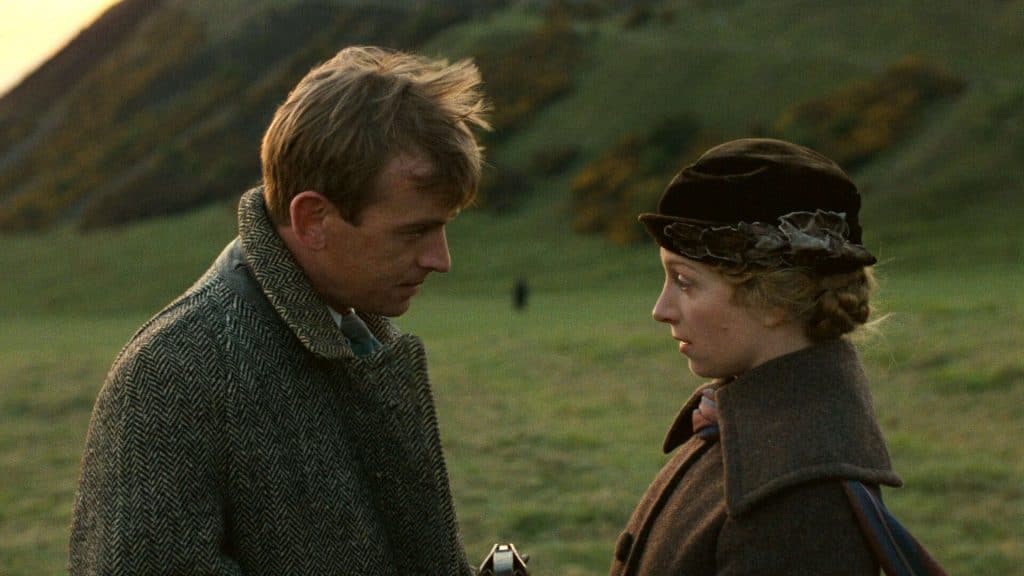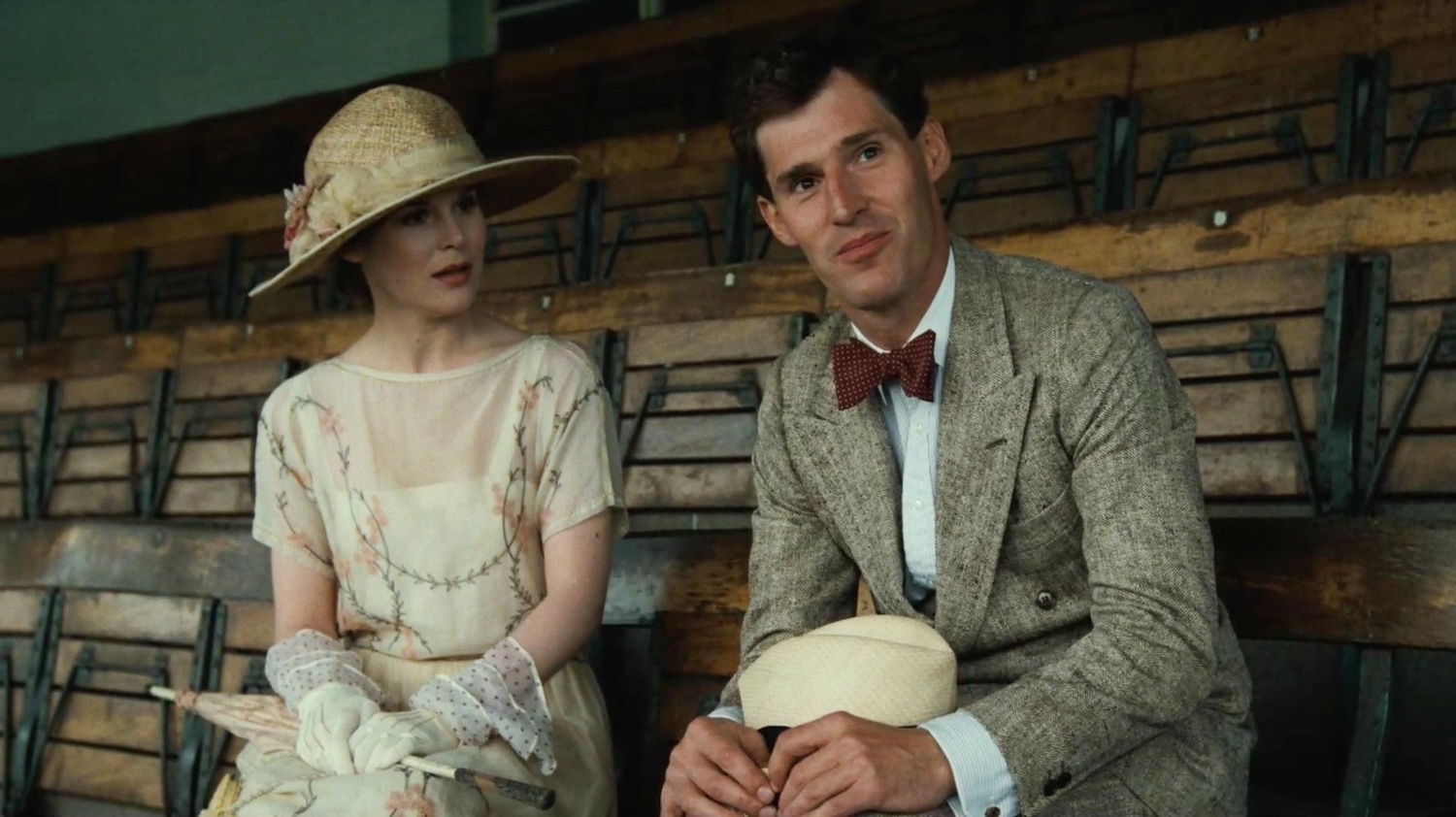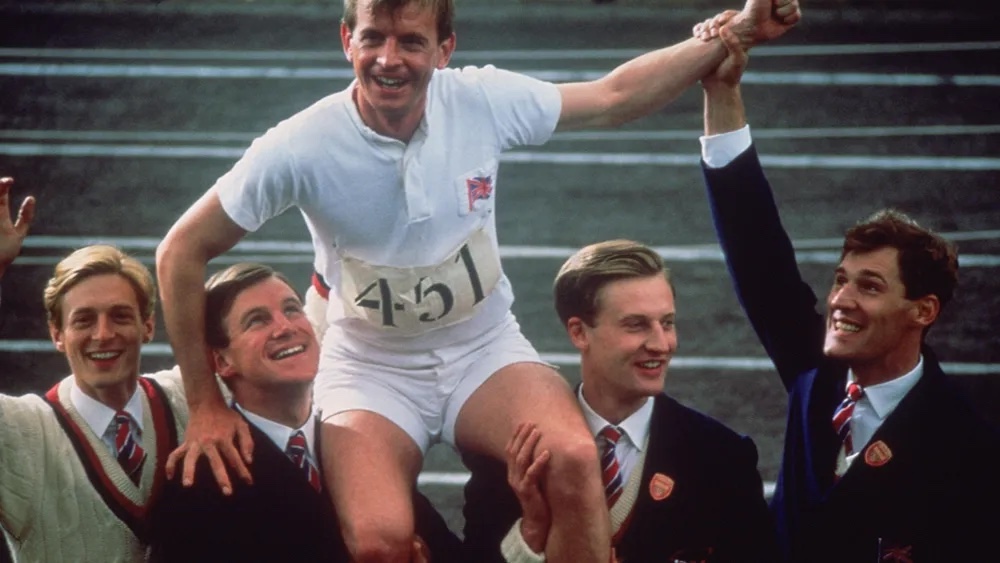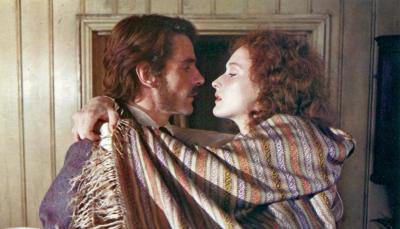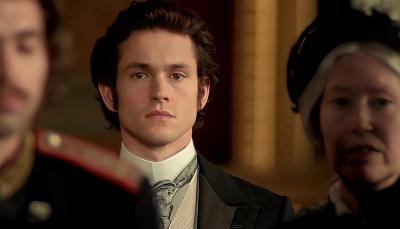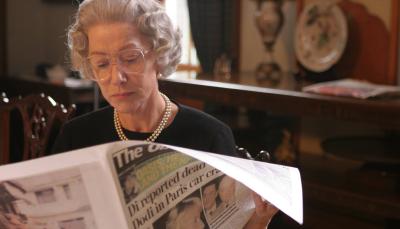Classics Revisited: 'Chariots of Fire' & The 1924 Paris Olympics
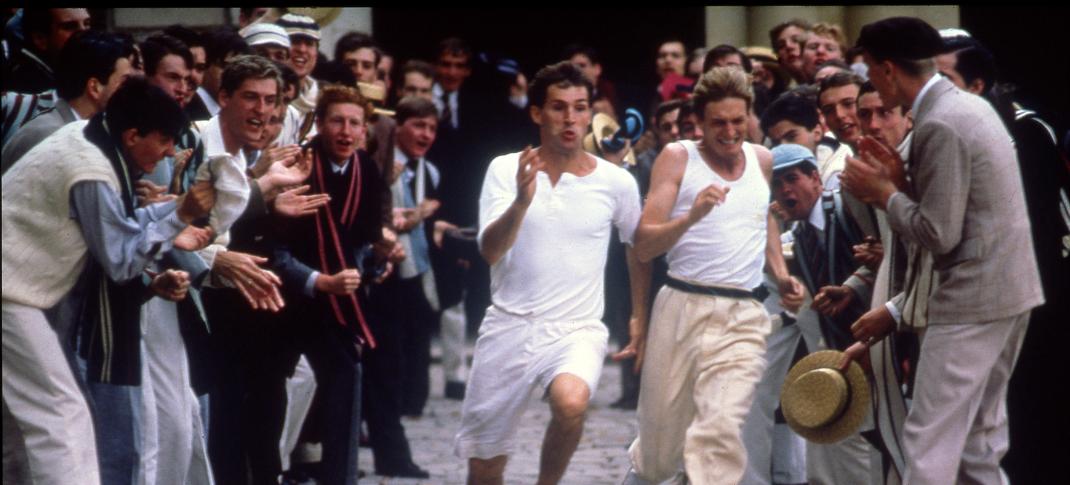
Harold M. Abrahams (Ben Cross) and Lord Andrew Lindsay (Nigel Havers).
© 1981 Twentieth Century-Fox
As the 2024 Paris Olympics draw to a close, we’re celebrating with a look back at 1981’s Chariots of Fire, a film based on the true story of the 1924 Paris Olympics. Directed by Hugh Hudson (his greatest hit in an otherwise unremarkable career) and written by Colin Welland, Chariots of Fire was inspired by Robert Bolt’s A Man For All Seasons. The creators wanted a plot similarly driven by moral choices, integrity, and honor. With the passing of former Olympian Harold Abrahamson, athlete, barrister, writer, and broadcaster, only a few years prior in 1978, the time was right to retell his story of overcoming the odds to win the Gold Medal for the U.K.
An upper-class British Jew, Abrahamson was a man of conscience who organized the country’s boycott of Hitler’s Olympics, promoted sports to Jewish youth, and raised British athletics to a professional level. With its unabashed patriotism and celebration of British culture, the film became a favorite of both Margaret Thatcher and Ronald Reagan. (Joe Biden also lists it as his favorite film.)
The film is smartly done to create broad appeal. On the surface, it’s a film that celebrates the conservative values of an earlier time, but subtextually, it’s a brilliant, occasionally subversive film with a superb cast, astonishing camera work, and a great score by Vangelis. Framed by Abrahamson’s then-recent funeral, the film rewinds to 1919, tracing the careers of athletes Harold Abrahamson (Ben Cross) and Eric Liddell (Ian Charleson) as they work toward the Olympics, opening with one of the most famous title sequences in cinema, where the British Olympics team in training run barefoot through the surf and sand of West Sands in St. Andrews, Scotland.
The Run on the Beach takes place in 1924, a week before the Olympic Opening Ceremonies, before the film rewinds back to Abrahams's arrival in Cambridge to study law. The specter of the Great War (World War I) is everywhere, from the men with grotesque facial injuries at the railway station, to the College Freshmen’s Dinner, where the dead alumni are remembered and mourned, their names recorded on huge wooden panels. So are the microaggressions, both real and perceived, such as being addressed as “laddie” by the Head Porter of Caius College (Richard Griffiths) or the Porter's comment, “Name like Abrahamson, he won’t be signing up for the chapel choir, will he?”
Outwardly assertive, confident, and proud, Harold soon befriends Aubrey Montague, known as Monty (Nicholas Farrell), a shy kid happy to be an acolyte. He becomes our sometimes-narrator, whom Harold talks to about the hurt and anger the casual anti-Semitism arouses in him, the son of a Lithuanian Jew who loves his adopted country. Harold soon gets himself noticed by announcing he’s trying for Trinity College’s quad dash, a race around the perimeter of the Trinity Great Court within the twelve strikes of noon, which according to the movie, had never been achieved.
At first, it looks as though Harold will run alone, until the appearance of Lord Andrew Lindsay (Nigel Havers), who arrives smoking a cigarette and shares champagne after the race. As the two men run, a noisy crowd of spectators shifts to follow them; Harold wins, but only just. The Master of Trinity (John Gielgud) and the Master of Caius (Lindsay Anderson) watch from an upstairs window. “Maybe they really are the chosen people,” the Master of Trinity comments.
Meanwhile, his soon-to-be-rival, Eric Liddell, the son of Scottish missionaries who grew up in China, attends uni in Edinburgh. Despite the misgivings of his devout family, embodied by his sister Jennie (Cheryl Campbell), he runs competitively. The ideal of muscular Christianity, spectators adore him, but he is open with his trainer, Sandy McGrath (Struan Rodger), that post-graduation, he plans to return to China. Eric’s ability catches Harold’s attention during a meet where he is pushed off the track before, in an enormous burst of speed, doing the impossible, outstripping the others and coming in first. Harold crushes the program in his hand. Meeting with legendary trainer Sam Mussabini (Ian Holm) afterward, he says Eric runs like a wild animal, and it’s unnerving.
As well as running, Harold loves music, notably Gilbert & Sullivan, and enthusiastically takes part in university productions. At a production of The Mikado, he is captivated by the singer performing the role of Yum-Yum, Sybil Gordon (Alice Krige). At the intermission, his friends praise the production and singers, particularly Yum-Yum, but then notice Harold is missing. He returns, having been backstage to invite Sybil to dinner. (The nice, shy English boys are dumbfounded, especially that she accepted.)
Sybil and Harold have an interesting dynamic; she’s a celebrity, a singer at the top of her game, and he’s her arm candy, a student and amateur runner. On their date at the Savoy, she makes gentle fun of him when he admits to being ruthless, but he describes it as a compulsory weapon to deal with the pettiness he experiences every day. When Eric and Harold go head-to-head the first time, Liddell wins. Sybil finds him brooding and tells him to snap out of it. However, she admits he “ran like a god.” Their kiss is interrupted by Sam, who has decided to take on Harold: “I can find you another two yards.”
Harold begins his arduous training, studying other runners and testing his strength and stamina. But this is something the Cambridge establishment has trouble accepting. The Masters of Caius and Trinity invite Harold to dine and, after praising the traditions of loyalty and responsibility represented in sport and the Cambridge tradition, express their distress. English gentlemen are amateurs, and hiring a coach (and a foreigner) is not done. As a Cambridge student, Harold is one of the elite and should follow the rules. Very civilly, he tells them they display the archaic values of the prep school playground and leaves.
Despite his initial plans to return to China, Eric begins aiming for the Olympics, saying it's his Christian duty to run. Sandy and Jennie join him, and the team travels to France. The Olympics, touchingly humble compared to the games a century later, are beautifully portrayed. The location is a stadium in Wirral, Merseyside. It includes a nod to American William DeHart Hubbard, the long jump champion at Paris and the first Black American to win a gold medal. The white members of the American team, accompanied by their trainers, are louche and cool, in contrast to the formal and more stuffy British athletes.
In one of the few unnecessary bits of fiction to heighten the drama, Eric discovers his heat is on a Sunday. A strict observer of the Sabbath, he refuses and has to face the Olympic committee, a collection of aged, stuffy aristocrats, and the Prince of Wales (David Yelland), who demand he sacrifice for his national honor. Luckily, the charming dilettante athlete, Lindsay, wanders in at the right time and offers to switch his Monday berth with Eric. Problem solved! Eric preaches at the Scottish church in Paris and then wins his heat, clutching a Bible verse from a fellow believer from the rival American team.
Eric claims god early on, but Harold is off to a rough beginning, losing his first two races. Just before Harold’s critical 100m. race, his last chance for a gold, Sam sends him an amulet that originally belonged to his father that has always brought him good luck, and which Harold wears. The Prince of Wales greets the contestants, makes friendly comments to the Americans, and invites them to dinner paid for by Harold if they win. His only words to Harold are the insolent comment, “Do your best; that’s all we can expect.” It’s followed by a wonderful piece of film, with Harold’s race and win repeated in slow motion as team members and American athletes come to greet him, and he stands dazed at his success.
Sam is in his room, which overlooks the stadium. As he hears the cheers and sees the Union Jack raised, the National Anthem plays. Sam punches a hole in his hat, laughs, and whispers, “My son.” Later, Sam and Harold spend a very drunken evening in a Parisian cafe, and Sam tells Harold to go home and start living. When Harold’s train arrives in London, he’s the last to leave the carriage, and he finds Sybil waiting for him. Back in Cambridge, the two elderly academics sniff and claim his win is just what they expected.
Bibs & Chips
- There’s an interesting afterword in real life to the quad run, which was filmed at Eton, where a similar quad exists because the Trinity authorities would not grant permission for the filming. The college had since regretted their refusal to the filmmakers, and in the late 1980s, a reconstruction of the race was organized, with British Olympic rival athletes Steve Ovett and Sebastian Coe competing and Havers returning as a starter.
- Liddell returned to China as a missionary. He died in an internment camp in 1945. He was deeply mourned in Scotland, where he had never been forgotten.
- The film's title comes from William Blake’s poem Jerusalem, which was sung at Harold’s memorial service. (He converted to Anglicanism later in life.) It is a favorite in England, associated with the Women’s Suffrage movement, and now the unofficial anthem of the Women’s Institute. Harold may have appreciated the “Dark Satanic Mills” line, usually interpreted as the mills of the Industrial Revolution, which Blake may have intended to reference the closed minds at Oxford and Cambridge.
- The film triumphed in the 1982 Academy Awards, winning Best Picture, Best Original Screenplay, Best Costume Design, and Best Original Score.
- However, it performed badly in the 1981 Cannes Festival, for its unflattering portrayal of the French, referring to them as “frogs” and “an unprincipled lot.” Critic Roger Ebert, an admirer of the film, rallied his American colleagues to create an "American Critics Prize," and Chariots of Fire is still the only film nominated for and winning this category at Cannes.
- The film was remastered and rereleased in 2012 to celebrate the London Olympics of that year and then again in 2021.
Chariots of Fire is available as a streaming rental on Apple TV, Prime Video, YouTube, and Fandango at Home.

